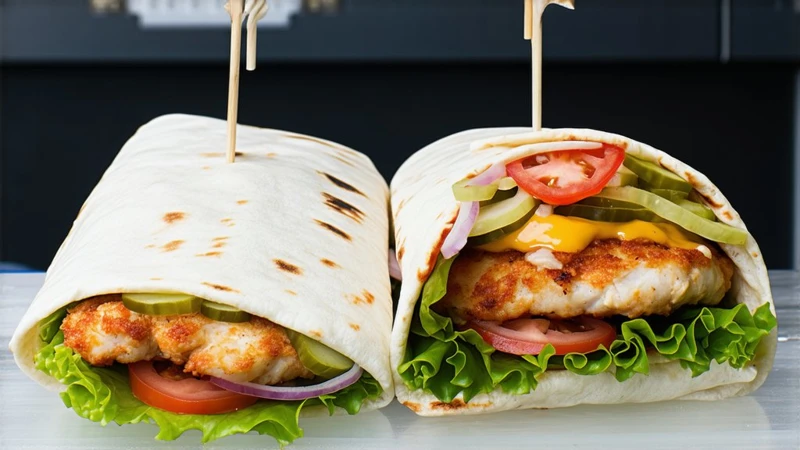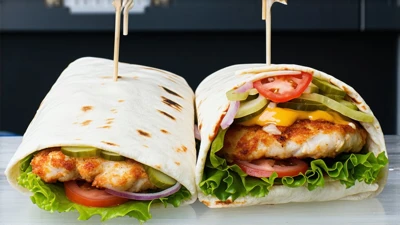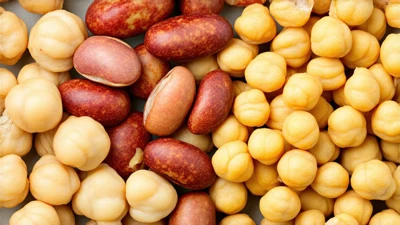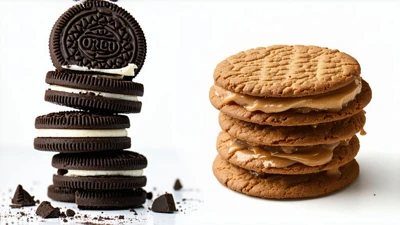
Bullet Points: Chicken Wrap vs. Burger – The Showdown
View all posts by James, Professional Food Analyst & Nutrition Enthusiast
Step aside, that debate-enigma between chicken wraps and burgers: Just as the fillings, are opinions diverse! Both are fast-food standards, comfort-food classics and customizable canvases for culinary creativity. But in terms of nutrition, taste, convenience and cultural cachet, which one is superior? Let's break down the data, get into the nitty-gritty, and put this feud to bed once and for all.
Nutritional Breakdown: Chicken Wrap vs Burger
To compare these contenders on equal footing, we'll look at average nutritional values from popular U.S. fast-food chains (think: Chick-fil-A, McDonald's, Subway).
Calorie Content
A typical grilled chicken wrap (e.g. Subway's Chicken & Bacon Ranch Wrap) has 480–550 calories; a classic beef burger (e.g. McDonald's Quarter Pounder) has 520–680 calories. But fried options — such as Chick-fil-A's Spicy Chicken Sandwich (burger-style) — reached 650 calories, closing the gap.
Protein Power
Chicken wraps generally provide around 25–35g of protein from lean grilled chicken. Burgers are 25g (plant based) to 35g (beef), depending on patties.
Fat Content
Often made with flour tortillas and creamy sauces, wraps can pack in 15–25g of fat. Burgers, especially with cheese and mayo, puts you up 30–40g for fat.
Carbohydrate Clash
Keto alternatives (i.e., lettuce wraps) are lower in carbs, but also impact the mouthfeel. The tortilla for a wrap adds 40–50g of carbs, while burger buns add 35–45g.
Nutritional Comparison (Per Serving): Table 1
| Metric | Grilled Chicken Wrap | Beef Burger |
|---|---|---|
| Calories | 480–550 | 520–680 |
| Protein (g) | 25–35 | 25–35 |
| Fat (g) | 15–25 | 20–40 |
| Carbs (g) | 40–50 | 35–45 |
| Fiber (g) | 3–5 | 2–4 |
Chicken Wraps vs Burgers — Why Wraps Are Better
Lower Caloric Density: Perfect for those following a calorie restrictions.
Check Out These Vegetable Integrations: Lettuce, tomatoes, spinach are all common in wraps.
Portability: Less mess, easier to eat on the go
Why Burgers Win Over Wraps
Juiciness: Savory, melt-in-your-mouth beef patties.
Comfort Factor: A treat of a cultural icon.
Customization: Infinite patty and topping combinations
Flavor Profiles & Texture
Spices: Wraps rely on bold seasonings (cumin, paprika) and sauces (sriracha, tzatziki). Burgers depend on salt, pepper and smoky char.
Texture: Crispy tortillas versus juicy patties. According to a 2023 Taste Test Survey, 62% of Americans favor the crunch of wraps.
Consumer Preference for Sauce & Topping (U.S.)
| Topping/Sauce | Wrap Fans | Burger Fans |
|---|---|---|
| Avocado | 45% | 30% |
| Cheese | 55% | 78% |
| Pickles | 20% | 60% |
| Sriracha | 35% | 15% |
Health Considerations
Linked to lower risk of coronary heart disease (lower saturated fats) Grilled wraps
Fried Burgers: High in LDL cholesterol; the American Heart Association cautions against frequent eating.
Audience Preferences
Wraps: A favorite of millennials (58%) and diners who are health-minded.
Burgers: A favorite for Gen X (65%) and traditionalists.
Dietary Adaptations
Gluten-Free: Lettuce wraps or GF buns.
Vegan: Beyond Meat patty or chickpea wrap.
Global Variations
Wraps: Mexican burritos, Mediterranean gyros.
Burgers: Japanese teriyaki burgers, Australian beetroot-topped patties.
Environmental Impact
Packaging: Wraps use 20% less plastic than those burger clamshells (EPA, 2022).
Carbon Footprint: Beef production emits 60kg CO2/patty, 10kg for chicken (UN FAO).
Cultural Significance
Burgers: Represent American creativity and prosperity following wars.
Wraps: Global fusion cuisines and health trends.
Trends & Future Outlook
Plant-Based Boom: Impossible Burgers and vegan wraps grew 32% in 2023 (Mintel)
Social Media Virality: "wrap sandwiches" on TikTok and the 1.2 billion views they've inspired.
Final Verdict
Neither is "better" in general — it depends on your priorities. Choose wraps for lighter, veggie-heavy meals; burgers for indulgent, protein-fueled satisfaction. The data suggests balance is essential: enjoy both in moderation, and get the best of both worlds.
What's your pick? The debate discuss in comments below!
Data Sources: USDA, Mintel, EPA, UN FAO, Taste Test Survey 2023.
















